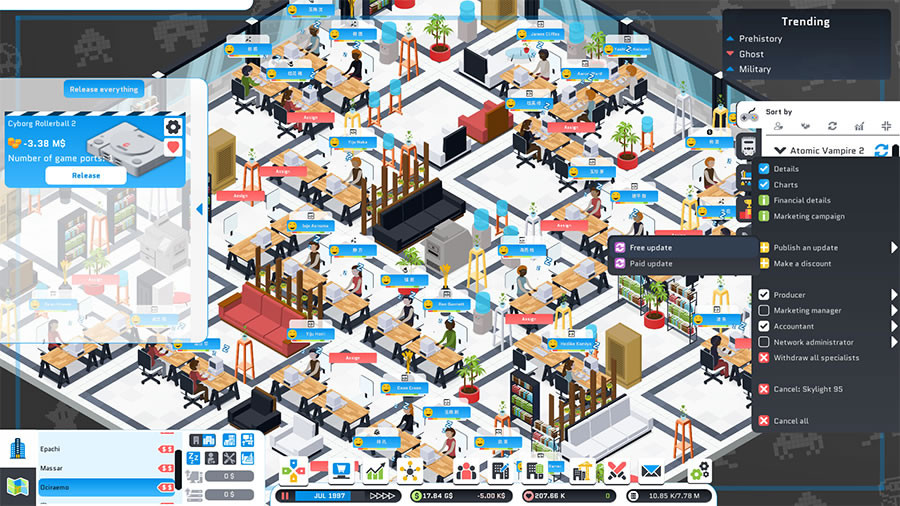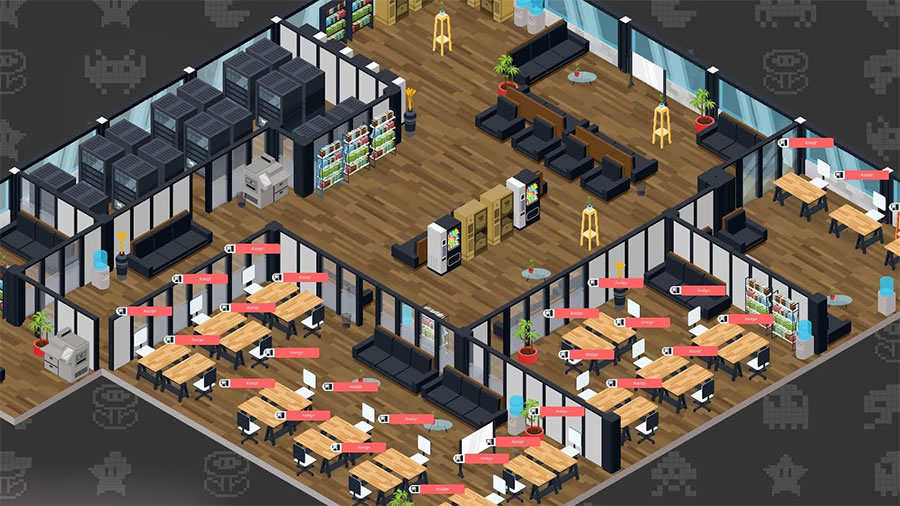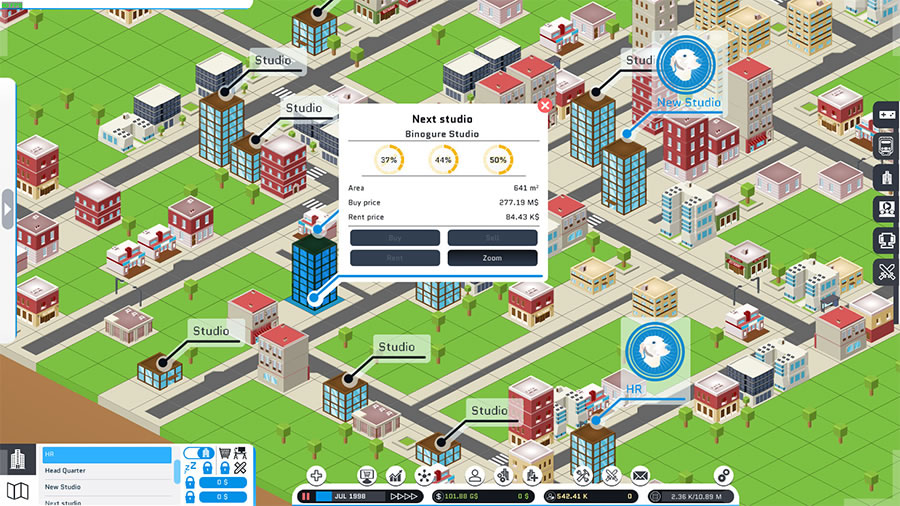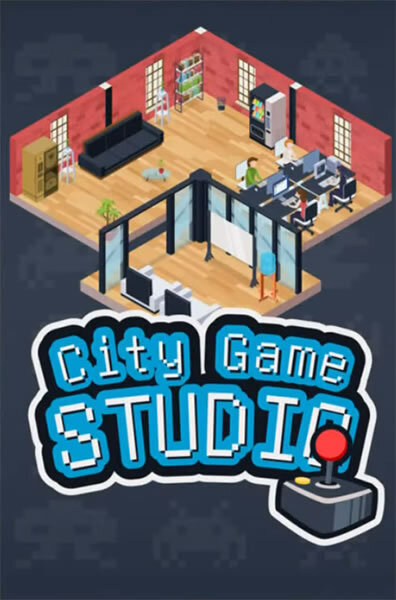- CLASSIC MAGAZINES
- REVIEW CREW
A show recapping what critics thought back
when classic games first came out! - NEXT GENERATION'S BEST & WORST
From the worst 1-star reviews to the best
5-stars can offer, this is Next Generation! - NINTENDO POWER (ARCHIVE)
Experience a variety of shows looking at the
often baffling history of Nintendo Power! - MAGAZINE RETROSPECTIVE
We're looking at the absolutely true history of
some of the most iconic game magazines ever! - SUPER PLAY'S TOP 600
The longest and most ambitious Super NES
countdown on the internet! - THEY SAID WHAT?
Debunking predictions and gossip found
in classic video game magazines! - NEXT GENERATION UNCOVERED
Cyril is back in this spin-off series, featuring the
cover critic review the art of Next Generation! - HARDCORE GAMER MAGAZING (PDF ISSUES)
Download all 36 issues of Hardcore Gamer
Magazine and relive the fun in PDF form!
- REVIEW CREW
- ELECTRONIC GAMING MONTHLY
- ELECTRONIC GAMING MONTHLY RANKS
From Mario to Sonic to Street Fighter, EGM
ranks classic game franchises and consoles! - ELECTRONIC GAMING MONTHLY BEST & WORST
Counting down EGM’s best and worst reviews
going year by year, from 1989 – 2009! - ELECTRONIC GAMING BEST & WORST AWARDS
11-part video series chronicling the ups and
downs of EGM’s Best & Worst Awards!
- ELECTRONIC GAMING MONTHLY RANKS
- GAME HISTORY
- GAME OVER: STORY BREAKDOWNS
Long-running series breaking down game
stories and analyzing their endings! - A BRIEF HISTORY OF GAMING w/ [NAME HERE]
Real history presented in a fun and pithy
format from a variety of game historians! - THE BLACK SHEEP
A series looking back at the black sheep
entries in popular game franchises! - INSTANT EXPERT
Everything you could possibly want to know
about a wide variety of gaming topics! - FREEZE FRAME
When something familiar happens in the games
industry, we're there to take a picture! - I'VE GOT YOUR NUMBER
Learn real video game history through a series
of number-themed episodes, starting at zero! - GREAT MOMENTS IN BAD ACTING
A joyous celebration of some of gaming's
absolute worst voice acting!
- GAME OVER: STORY BREAKDOWNS
- POPULAR SHOWS
- DG NEWS w/ LORNE RISELEY
Newsman Lorne Riseley hosts a regular
series looking at the hottest gaming news! - REVIEW REWIND
Cyril replays a game he reviewed 10+ years
ago to see if he got it right or wrong! - ON-RUNNING FEUDS
Defunct Games' longest-running show, with
editorials, observations and other fun oddities! - DEFUNCT GAMES QUIZ (ARCHIVE)
From online quizzes to game shows, we're
putting your video game knowledge to the test!- QUIZ: ONLINE PASS
Take a weekly quiz to see how well you know
the news and current gaming events! - QUIZ: KNOW THE GAME
One-on-one quiz show where contestants
find out if they actually know classic games! - QUIZ: THE LEADERBOARD
Can you guess the game based on the classic
review? Find out with The Leaderboard!
- QUIZ: ONLINE PASS
- DEFUNCT GAMES VS.
Cyril and the Defunct Games staff isn't afraid
to choose their favorite games and more! - CYRIL READS WORLDS OF POWER
Defunct Games recreates classic game
novelizations through the audio book format!
- DG NEWS w/ LORNE RISELEY
- COMEDY
- GAME EXPECTANCY
How long will your favorite hero live? We crunch
the numbers in this series about dying! - VIDEO GAME ADVICE
Famous game characters answer real personal
advice questions with a humorous slant! - FAKE GAMES: GUERILLA SCRAPBOOK
A long-running series about fake games and
the people who love them (covers included)! - WORST GAME EVER
A contest that attempts to create the worst
video game ever made, complete with covers! - LEVEL 1 STORIES
Literature based on the first stages of some
of your favorite classic video games! - THE COVER CRITIC
One of Defunct Games' earliest shows, Cover
Critic digs up some of the worst box art ever! - COMMERCIAL BREAK
Take a trip through some of the best and
worst video game advertisements of all time! - COMIC BOOK MODS
You've never seen comics like this before.
A curious mix of rewritten video game comics!
- GAME EXPECTANCY
- SERIES ARCHIVE
- NINTENDO SWITCH ONLINE ARCHIVE
A regularly-updated list of every Nintendo
Switch Online release, plus links to review! - PLAYSTATION PLUS CLASSIC ARCHIVE
A comprehensive list of every PlayStation
Plus classic release, including links! - RETRO-BIT PUBLISHING ARCHIVE
A regularly-updated list of every Retro-Bit
game released! - REVIEW MARATHONS w/ ADAM WALLACE
Join critic Adam Wallace as he takes us on a
classic review marathon with different themes!- DEFUNCT GAMES GOLF CLUB
Adam Wallace takes to the links to slice his way
through 72 classic golf game reviews! - 007 IN PIXELS
Adam Wallace takes on the world's greatest spy
as he reviews 15 weeks of James Bond games! - A SALUTE TO VAMPIRES
Adam Wallace is sinking his teeth into a series
covering Castlevania, BloodRayne and more! - CAPCOM'S CURSE
Adam Wallace is celebrating 13 days of Halloween
with a line-up of Capcom's scariest games! - THE FALL OF SUPERMAN
Adam Wallace is a man of steel for playing
some of the absolute worst Superman games! - THE 31 GAMES OF HALLOWEEN
Adam Wallace spends every day of October afraid
as he reviews some of the scariest games ever! - 12 WEEKS OF STAR TREK
Adam Wallace boldly goes where no critic has
gone before in this Star Trek marathon!
- DEFUNCT GAMES GOLF CLUB
- DAYS OF CHRISTMAS (ARCHIVE)
Annual holiday series with themed-episodes
that date all the way back to 2001!- 2015: 30 Ridiculous Retro Rumors
- 2014: 29 Magazines of Christmas
- 2013: 29 Questionable Power-Ups of Christmas
- 2012: 34 Theme Songs of Christmas
- 2011: 32 Game Endings of Christmas
- 2010: 31 Bonus Levels of Christmas
- 2009: 30 Genres of Christmas
- 2008: 29 Controls of Christmas
- 2007: 34 Cliches of Christmas
- 2006: 33 Consoles of Christmas
- 2005: 32 Articles of Christmas
- 2004: 31 Websites of Christmas
- 2003: 29 Issues of Christmas
- 2002: 28 Years of Christmas
- 2001: 33 Days of Christmas
- NINTENDO SWITCH ONLINE ARCHIVE
- REVIEW ARCHIVE
- FULL ARCHIVE
Golf Club Wasteland
Let me ask you a question: Do you have what it takes to create the next big video game studio? Unfortunately, if we're being honest with ourselves, the answer is probably no. With development costs skyrocketing and hundreds of new games coming out every single week, I think it's fair to say that it's extremely hard to break into the industry in 2021. But what if you started back in 1976? Would you be able to dominate the 8-bit era and create the iconic franchises we're still talking about to this day? That's the question being asked in City Game Studio, a management simulator that just recently came out of Steam Early Access. It gives you a chance to experience the roller coaster ride that is game develop, from bad reviews to employee turmoil to a great games crash just waiting to screw everything up. That's a fun concept, but can City Game Studio turn the ups and downs of the industry into a compelling simulator? Let's open up a studio and find out.
Chances are good that you already know the story of City Game Studio. You've no doubt heard the tales of 8-bit games being developed by a single person in a small room and how a certain Italian plumber helped pull the industry back from total collapse. Perhaps you lived through the 16-bit console wars or were crushed when Sega abandoned the Dreamcast. Hell, I bet you could even tell me where you were when you first heard about Hot Coffee or played Guitar Hero for the first time.
All of this history is wrapped up in City Game Studio. It's a management simulator that puts you in the middle of a very loose retelling of the games industry's past and present, allowing us to turn our fledgling development house into the next Nintendo or Activision. And, who knows, maybe you could do all this without causing a bunch of creepy controversies.
Our adventure starts all the way back in 1976, at the infancy of the home console market. This was a time when the barrier for entry was relatively low and making a game was fairly cheap, which is a good thing, because we don't have a lot of money or people at the start of City Game Studio. In fact, we only have one coder and a start-up investment that will afford only a few games. Our goal is to predict the types of genres and themes the audience wants and then develop a game that makes money, affording you the chance to hire a few employees and keep making games.
For the most part, creating a game is a hands-off affair. A lot of it boils down to using a slider bar to tweak the story, sound, artwork, challenge, physics, optimization and more. On top of that, you'll also choose if you want cinema scenes, stereo sound, joystick support, a password save system, customizable characters and anything else the game engine can offer. But watch out, because not only do these extra goodies add to the overall cost of the game, but those early systems won't be able to handle all of the bells and whistles at once. You'll need to pick and choose what you want based on the type of game and the console it's for.
As the industry grows in size, so should your fictional game company. With a dozen employees, you'll suddenly be able to take contract work for other publishers and hire marketing experts to improve the visibility of your own games. This will lead to the studio creating a propriety game engine, which you can sell to other companies for a cut of their profits. Before long you'll be porting your titles to other systems, taking part in game conventions and doing interviews with the press. And if your games attract enough fans, you may find yourself in the position to develop your own game system and make real money.
All this is happening as the industry changes from one generation to the next. The themes and genres that were trendy in the 8-bit era may now feel passe on the 32-bit GameStation, and what worked on the consoles might be a bad fit in the portable market. Reviews will become a bigger deal, to the point where your release might be named the Game of the Year, opening up the possibility of a re-release. And as things shift to online connectivity, there will be a bigger push to develop downloadable content, free updates and subscription programs to extend the game's life cycle.
This is one of those games that starts out incredibly simple, only to eventually spiral out of control with an almost overwhelming amount of options and decisions. We haven't even talked about unlocking new genres, refurnishing the office, buying up real estate and spamming different journalists for favorable coverage. And if you're bored during an especially grueling development cycle, you can try and hack a competitor's computer and learn their secrets. There was even a point when I wondered if starting my own version of Steam might actually be more profitable than making yet another iteration of Kaiju Dance Party.
What I like about the game is how we're given just enough control to feel like it's our own unique story. My first playthrough was plagued by bad money choices and so-so reviews from the critics. I tried to rebound, but ultimately hit a wall when I tried to release a game based on a movie at the height of the great game crash. In other words, I made the same mistake as countless real life developers in the early 1980s. Even without an elaborate narrative, I was able to fill in the story by myself. And yes, I did feel dumb for falling into that trap.
My second stab at the game allowed me to not only make better choices, but also admire the attention to detail when it comes to the history. This is especially true when you look at all of the computers and consoles that come and go. Every one of them is based on some sort of system, including a lot of the lesser-known releases, like the 3DO, Lynx and Neo Geo Pocket Color. I like the art design and parody names, and seeing how quickly some come and go is a real treat for those of us who know our game history.
That said, I started to wonder if my knowledge of the industry was actually working against me. I invested heavily in the game's fake versions of the Atari 2600 and Nintendo Entertainment System knowing that both systems dominated their generations. For as much as I wanted to support the Master System, Jaguar and 32X, I knew that their shelf life was limited. It made me wonder if a few strong games made by my experienced developers could have extended the life of the Saturn a few more years. Maybe my team could have saved the Dreamcast. We'll never know.
There's no question that all of this is a lot of fun, but it's also incredibly repetitive. Even as the game adds more options and distractions, you'll find that you're doing a lot of the same thing with each generation. Unfortunately, a lot of what you're doing is just sitting around and watching people work on a project. This becomes more of a juggling act when you create multiple projects for all of your different studios, but even then, there's still a lot of waiting around. I wish there was more to do between projects and while everything is going on. Too much of the game feels like it's on auto-pilot.
I also wish there was a bit more visual flair. Don't get me wrong, the game has a charming look that is pleasing to the eyes, but we're basically just looking at static images of faceless employees. We may furnish the office with vending machines and couches, but we never actually see anybody get up and use them. We also never get to see the game conventions we go to or even what the cover art looks like. I wish there was more to the press interviews, which always seem like they are in a hurry to end. I like the overall aesthetic, but found the simple visuals got boring after a while.
Thankfully, I didn't get bored of the gameplay. Sure, the circular nature of the structure is a bit repetitive, but I found my ascent from an indie studio to a triple-A game maker to be fun the whole way through. I especially liked the way they worked in the real life history, even if they play with the timeline in a lot of curious ways. And best of all, City Game Studio finally allowed me to experience something I've always dreamed about -- winning a Game of the Year award. You'll never take that away from me.
HOME |
CONTACT |
NOW HIRING |
WHAT IS DEFUNCT GAMES? |
NINTENDO SWITCH ONLINE |
RETRO-BIT PUBLISHING
Retro-Bit |
Switch Planet |
The Halcyon Show |
Same Name, Different Game |
Dragnix |
Press the Buttons
Game Zone Online | Hardcore Gamer | The Dreamcast Junkyard | Video Game Blogger
Dr Strife | Games For Lunch | Mondo Cool Cast | Boxed Pixels | Sega CD Universe | Gaming Trend
Game Zone Online | Hardcore Gamer | The Dreamcast Junkyard | Video Game Blogger
Dr Strife | Games For Lunch | Mondo Cool Cast | Boxed Pixels | Sega CD Universe | Gaming Trend
Copyright © 2001-2025 Defunct Games
All rights reserved. All trademarks are properties of their respective owners.
All rights reserved. All trademarks are properties of their respective owners.
































